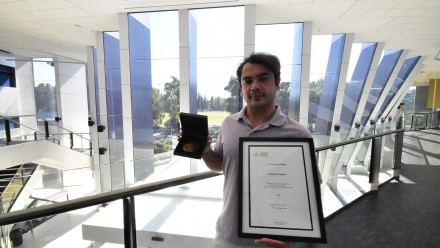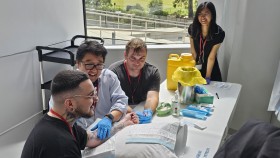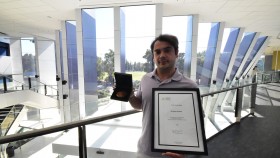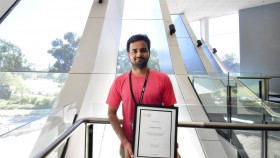Anti-cancer drug to help fight malaria
ANU researchers have helped find a new way to make anti-malaria drugs more effective by combining them with a low dose of an anti-cancer drug.
Malaria kills more than 500,000 people every year and the malaria parasite is becoming increasingly resistant to medication.
Professor Simon Foote, Director of The John Curtin School of Medical Research (JCSMR), and Dr Gaetan Burgio leader of the Genetics of Host-Pathogens Interactions Group, were part of an international team to discover how the malaria parasite protects itself by building resistance against the last-line in antimalarial medications.
“This discovery has shown that a combination therapy with a low dose of anti-cancer drug and the last-line antimalarial drug can disable a parasite’s defences. This offers a new avenue to combat antimalarial resistance,” Dr Burgio said.
The study found the effectiveness of antimalarial drugs known as artemisinins, or ARTs, can be increased by combining them with a low dose of an anti-cancer drug.
The malaria parasite’s resistance to ART drugs is jeopardising global malaria control.
The research was led by the University of Melbourne, in collaboration with researchers from ANU and in Thailand, Singapore and the United States.
The research was published in the journal PLOS Biology.














